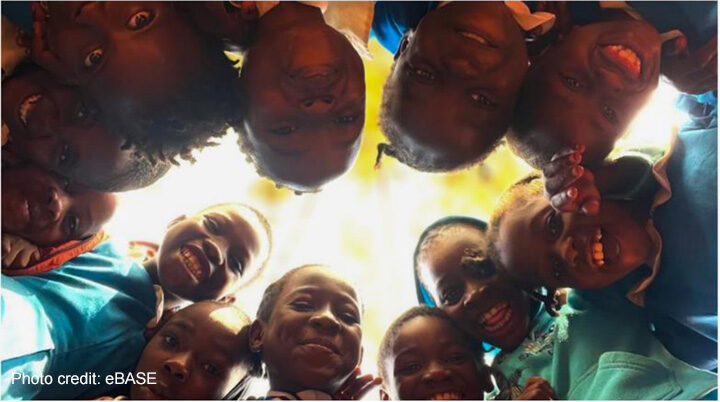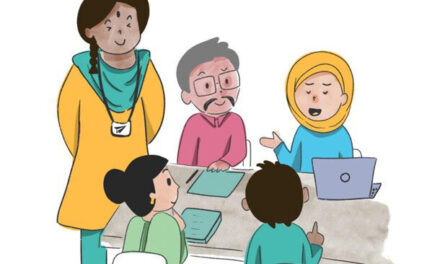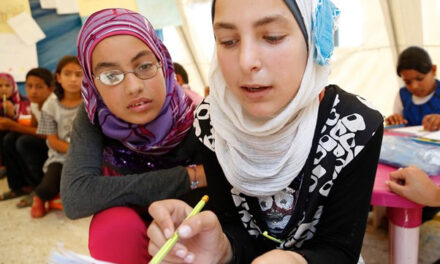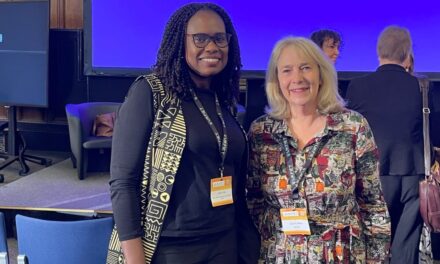This blog was written by Ernest Alang Wung, Team Lead Assistant, Effective Basic Services (eBASE) Africa; Chanice Fri Okwen, Program Manager, Cameroon Initiative for Research and Development (CIReD); and Patrick Okwen, Team Lead, eBASE Africa.
Education in crisis contexts
Across Cameroon, conflict and instability have disrupted learning for thousands of children. The ongoing Anglophone crisis, Boko Haram attacks in the far north, and refugee influxes from neighboring countries have forced families to flee their homes. Children who are internally displaced persons (IDPs) face particular challenges when entering new schools.
Often labelled as ‘IDPs; or mocked as ‘big mama’ or ‘big papa’ if they are older than classmates, these children carry the weight of trauma and stigma. Such experiences damage their confidence, limit participation in class, and reduce motivation to learn. Mathematics and literacy demanding subjects become even harder when learners feel excluded.
At Effective Basic Services (eBASE) Africa and inspired by readings, such as Battle (2000) and Keahey (2023), we asked: Can African philosophies of community and togetherness, specifically Ubuntu, offer solutions for supporting learning and wellbeing in crisis? The eBASE Big Mama Project aims to improve access to learning for IDPs in Cameroon through a Social and Emotional Learning (SEL) intervention.
Ubuntu as pedagogy
Ubuntu, often expressed as “I am because you are”, emphasises relationality, care and shared humanity. While widely discussed in law, ethics and philosophy, Ubuntu also has powerful potential for education. We applied it as a pedagogic principle, focusing on six key pedagogical strategies:
- Understanding of self and others
- Building positive relationships and setting boundaries
- Unifying children to work together
- Nurturing the minds of children
- Teaching from a position of love and care
- Utilising evidence-based practices to meet the diverse needs of all students.
Through these principles, we aimed to reduce stigma, strengthen social bonds in classrooms, and ultimately improve learning outcomes.
The Social and Emotional Learning (SEL) pilot
With support from the Education Endowment Foundation (EEF), eBASE Africa implemented a SEL pilot in three Cameroonian regions (Centre, Littoral, West) between 2023–2024.
The programme included:
- Friendship clubs and healing classrooms to foster belonging
- Workshops for teachers, parents/guardians and inspectors on Ubuntu pedagogy to encourage safe spaces at school and at home
- Storytelling diaries (i.e., Tori Dey Deftere) and teacher logbooks to track progress.
The pilot reached 31,175 internally displaced pupils (roughly half boys and half girls, aged 6–18).
What we found
The results were striking:
- Attendance rose above 95% in intervention schools. Pupils were more eager to come to school and less likely to drop out due to shared lived experiences, friendship clubs and the ubuntu pedagogy of teaching.
- Reduced stigma: Teachers and classmates began to see IDPs not as outsiders but as part of the school family. Mocking nicknames declined – increasing not just performance but attendance.
- Numeracy gains: Standardised Early Grade Mathematics Assessments (EGMA) and Early Grade Reading Assessment (EGMA) showed measurable improvement. Children moved from failing categories to higher levels of performance.
- Emotional wellbeing: Pupils reported stronger friendships, greater cooperation, and feeling safer in class.
Importantly, the analysis confirmed that social wellbeing and academic performance are interconnected. When children feel supported and respected, they learn better.
Why Ubuntu matters now
In times of crisis, education is often framed in terms of infrastructure, textbooks, and exams. While these matter, our study shows that social and emotional wellbeing is not optional; it is foundational.
Ubuntu pedagogy provides a culturally grounded, African-rooted approach that addresses the whole life of a child/learner. It challenges harmful labels like ‘IDP. and instead affirms the dignity of every learner.
At a broader level, Ubuntu resonates with global debates about inclusive education, social justice, and even technology. As artificial intelligence and digital classrooms expand, Ubuntu reminds us that human connection cannot be replaced.
Challenges to overcome
Despite its promise, the programme faced hurdles:
- Resource constraints: Many schools lacked adequate materials to sustain SEL activities.
- Teacher training: Continuous professional development is essential to embed Ubuntu pedagogy effectively.
- Scaling up: Moving from pilot to system-wide adoption requires stronger policy engagement and investment. Only 3 regions out of 10 regions were used in our pilot; scaling up requires sufficient human and financial resources.
Looking ahead
Our work demonstrates that even during conflict, education can be a source of healing and hope. By centering Ubuntu in pedagogy, schools can become spaces of inclusion where displaced children are not defined by crisis but supported to thrive academically and socially.
For policymakers, the lesson is clear: invest in social and emotional learning as much as in curriculum and infrastructure. For educators, Ubuntu offers a guiding principle: “I am because you are.” Teaching is not just about transferring knowledge, but about building communities of care.
As Cameroon and other crisis-affected contexts seek to safeguard learning, Ubuntu pedagogy stands as both an indigenous philosophy and a practical strategy for resilience.





